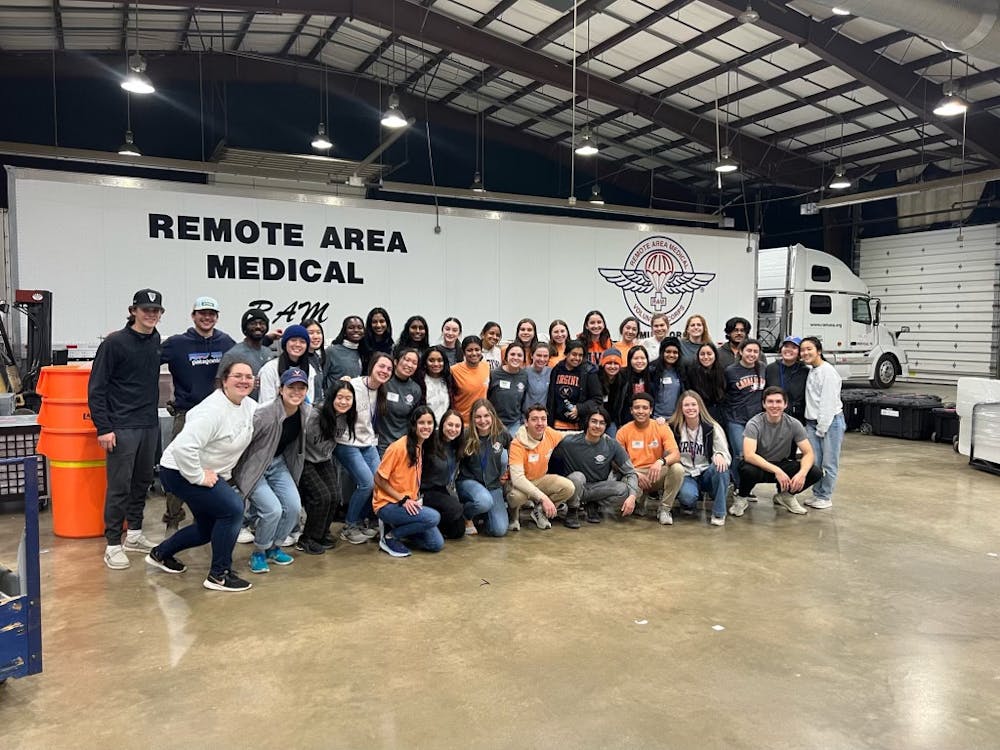Next to the University Hospital, the Elson Student Health Center looks small and inconspicuous. But the squat brick building located at 400 Brandon Avenue is home to a wealth of resources and departments aimed to meet student needs. One of these is Counseling and Psychological Services, which offers students a wide variety of free mental health resources.
“Definitely, the most frequent clinical service students take advantage of is individual psychotherapy,” CAPS Director Dr. Tim Davis said.
He said he would like to see more students take advantage of group therapy and couple’s counseling because “anything that improves healthy relationships is one of the most beneficial things for good mental health.”
CAPS offers consultations and mental health screenings, crisis response and specialist referrals, as well as online resources for students who may not be comfortable coming in or may not be sure if they need the help CAPS offers.
Davis emphasized that CAPS is not just for students in dire need.
“The students who are going to be the best and the brightest, they need help,” he said. “There are going to be people who are already achievers, but want to achieve more, who want to be happier, students who want [to] have a better committed relationship. We want to be there for them just as much as for students who come in and say ‘I have depression and can’t get out of bed in the morning’.”
CAPS recently started a new initiative to increase community outreach, hiring Dr. Andrea Iglesias as assistant director of outreach and liaison programming. Davis said the goal of the outreach initiative is in part to help students develop skills to maintain good mental health without having to even come into CAPS.
“We can reach people who are on the edge of developing something or don’t really need clinical help, but could just benefit from some of our services,” Davis said.
The program also aims to make a trip to CAPS as innocuous as a regular trip to the doctor, rather than one marred by social stigma.
CAPS operates under a strict code of confidentiality. The only instances in which information about a CAPS visit would be revealed would be at the request of the patient or if a life was in danger. If a student reveals a situation in which they or another person, such as a younger sibling, are experiencing serious abuse, mental health professionals have an ethical obligation to notify authorities.
“This is my sixth counseling center [that] I’ve worked at and I’ve never seen a better group of clinicians,” Davis said. “They’re incredibly smart, very well-trained and very focused on giving good clinical help to students.”
To speak to a CAPS clinician, call (434) 243-5150. Phone numbers and emails for more specific services can be found at their website.
Top 10 Tips for Mental Health
1. Aerobic exercise has been shown to improve mood regulation. Test your body out and be proud of what you can do, no matter what it looks like.
2. Eat well. Making good choices can improve self-esteem and a healthy diet is almost as important to mental as to physical health.
3. Sleep! Getting enough sleep is important, but even more important is sticking to a schedule.
4. Challenge yourself. Stepping out of your comfort zone on a regular basis can slowly but surely expand your comfort zone. Discovering new skills can give you a confidence boost, and taking time to work on things that you’re not naturally good at can stave off boredom while providing a sense of achievement and purpose.
5. Confide in people. Finding someone you trust enough to share important news or secrets with can strengthen your relationships and provide a deep sense of satisfaction.
6. Talk it out. Keeping things bottled up can cause you to stress about them and second guess yourself. Talking about something that worries you gives you a chance to hear your thoughts aloud, get a second opinion and discover that you’re not the only one going through it.
7. Don’t compare yourself. Everyone is trying to put their best personas forward, especially on social media. You can’t expect your behind-the-scenes to look like someone else’s highlight reel.
8. Don’t be afraid to ask for help. Whether it’s from CAPS, a professor, a parent or a friend, get what you need before your problems have a chance to build.
9. Take breaks. Your mind needs time to process and relax. “Three times a week, do something fun, something that expands you and doesn’t involved substances or class,” Davis said.
10. Breathe. Nothing lasts forever. Every situation can benefit from taking a step back to look at the bigger picture, taking a new approach or even going for a snack break and coming back refreshed.
This list is not intended to replace medical advice — please refer to CAPS with any questions or medical concerns.




